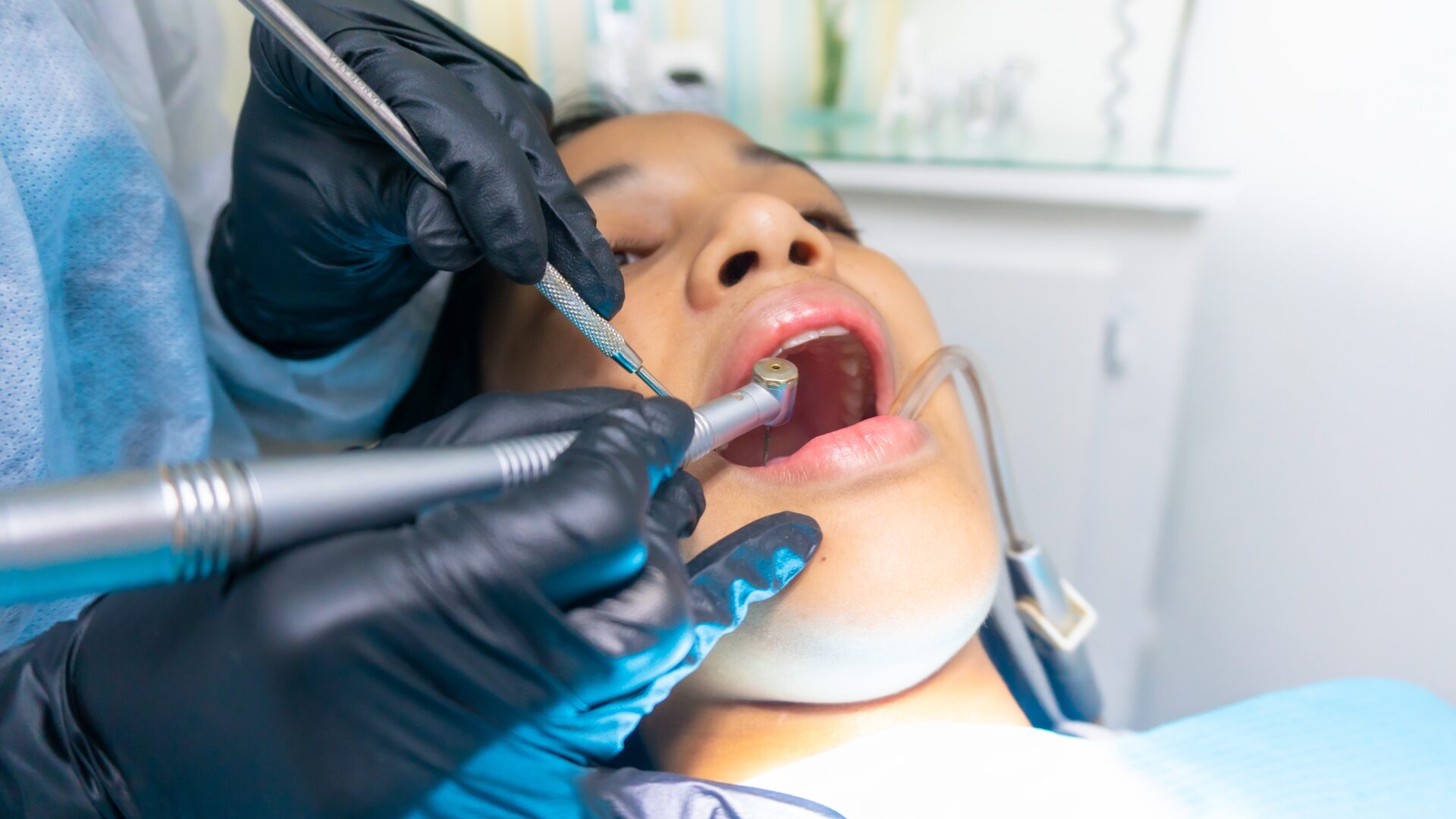According to The National Institute of Dental and Craniofacial Research, just over 90% of adults in America have suffered from at least one cavity. The risk of developing additional cavities is dependent on lifestyle factors. Smokers are more likely to suffer from tooth decay, as well as adults between the ages of 50 and 64 years old. From 2011-2016, American adults aged 20 to 64 had an average of 9 decayed, missing, or filled teeth. It’s no surprise that many people ask themselves, how do I know if I have a cavity?
Cavity symptoms are easily identified, mostly due to the nature of the condition. Cavities are a result of decay of a tooth, due to genetics, lifestyle, or injury to the tooth. Diet can play a role in cavity formation, with sugar and carbohydrates being the biggest offenders.
The sugar is broken down by the bacteria in the mouth to create acid that is strong enough to gently slough away a tooth until a hole or cavity appears. This is one reason why many dentists recommend brushing after meals, especially at night. Genetics determine how resilient one’s enamel is, or how much bacteria is in their mouth. Lifestyle habits, such as dehydration and smoking, contribute to the bacteria’s ability to inhibit or enable acid formation.
Taking the guesswork out of cavities involves knowing what symptoms to note down when there’s pain or sudden tooth changes. We’ve outlined the most common symptoms that can arise from untreated dental caries (cavities) so you can feel informed when seeking out dental treatment and preventative health screenings.
Bad Breath and Unusual Odor
A less common, yet equally crucial, cavity symptom involves something that you or others may notice. Halitosis, or bad breath, can be present when there is tooth decay. Because the bacteria is eating away at the tooth, which causes the cavity itself, that same bacteria emits a scent from metabolizing your tooth material. Over time, the stench will be more present as the cavity gets worse. Brushing and flossing will not remove this odor and is a good sign to call your dentist to get checked out.
Tooth and Mouth Sensitivity
If you experience a cold or painful sensation when drinking or eating cold foods, you have tooth sensitivity. Less likely, a response to hot or texturally different foods can also indicate tooth sensitivity. Root nerves are protected by a thick layer of enamel – our teeth. Cavities are an exposed chunk of tooth that makes access to the root nerve more available. This means that the normally concealed nerve is reactive to any intrusion.
As a cavity gets worse, the teeth will get more sensitive and even cause dull aches and pains without food or drink. Many patients go to the dentist when they have tooth sensitivity because it is the most uncomfortable symptom.
Change in Color or Shade of a Tooth
Ever notice a different colored spot on a tooth? Maybe one of your teeth is a different color than the others? The decay and wear associated with the bacteria that create dental caries can discolor the tooth. The newly exposed areas of the tooth can also get stained from food and drink easier due to the lack of enamel. If you notice discolored areas on your teeth, call your dentist and rule out a cavity.
As a tooth is repaired, the dentist removes decayed parts of the tooth before placing the filling. This ensures that all the bacteria and acid are removed from the tooth so that the cavity cannot continue to wear away at the tooth and risk exposing the root nerve.
Aches and Pains in Your Tooth and Mouth
From acid forming in the mouth to wearing away enamel and exposing a tooth, cavities cause a lot of discomfort and pain for patients. You may feel a general sense of ache or a sharp pain with a cavity. Over time, if untreated, the level of pain will increase and become difficult to manage. Food and drink can make it worse, or it can hurt on its own at any time.
Do you find that you’re regularly looking for ibuprofen or a tooth-numbing gel? You may be suffering from enamel injury or a cavity. Receiving imaging and a dental exam from your dentist will rule out other conditions and secure treatment to avoid further damage.
Teeth Sticking Together When You Bite Down
A unique symptom that is associated with cavities is a sticky feeling between teeth. More specifically, when you bite down, if you experience a slight sticking of the teeth to one another, you may be dealing with cavity formation. This can occur due to the acid buildup in the teeth and is a good signal that there is an imbalance in the diet or lifestyle.
If you experience other symptoms on this list, as well as sticking teeth, it is a good idea to contact your dentist and be seen for a wellness visit.
While cavities and the treatments that come along with them may seem scary, they can quickly develop into more serious conditions that require more intensive procedures to repair them. Tooth sensitivity is a common sign that your teeth are compromised in some way, likely a cavity. Halitosis can be a result of poor dental hygiene but hints toward a dental cavity if your brushing and flossing routine is already great.
Teeth that show patches of discoloration, or teeth that are a different color from the rest, may occur due to the decay of cavity-forming bacteria. Any tooth or mouth pain is always an important symptom to prompt a dental visit, and sticking teeth are all possible symptoms of a cavity. Once you receive treatment for your symptoms, and resolve the root cause, you will feel relief and your mouth will thank you.











